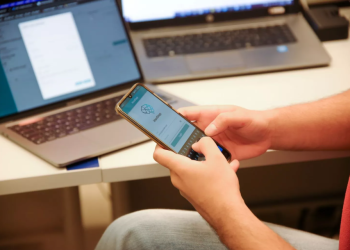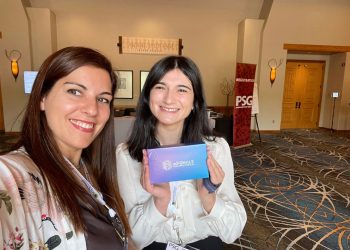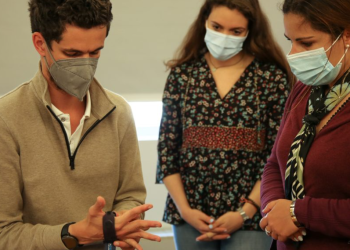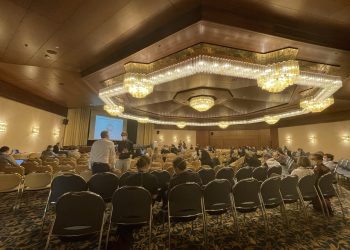A Neuro Digital Platform

About inSignals
Insignals Neurotech is revealing the hidden data behind Movement Disorders.
Our team is improving how motor symptoms are assessed in chronic diseases, starting with Parkinson’s disease. This disease presents significant challenges due to constant fluctuating symptoms, where remote monitoring is fundamental to ensure high quality patient care.
Our mission
We believe every patient deserves treatment adjusted to their needs. That’s why we are committed to delivering biomarkers that will offer a comprehensive understanding of motor symptoms.
We are developing the first solution capable of assessing all motor symptoms of Parkinson’s Disease, being unique to offer data on muscular rigidity (muscular stiffness) through a patented technology.
Our AI Analytics Engine can assess all relevant motor symptoms such as tremors, bradykinesia, gait and rigidity. Our main goal is to deliver meaningful biomarkers to help adjust therapeutics in an effective way for each patient.

The Gap
The lack of solutions for the assessment of rigidity leaves a critical gap in patient assessment.
Parkinson’s is a chronic neurodegenerative disease affecting 10 million people worldwide, with numbers expected to rise significantly as the population ages.
The primary motor symptoms include tremors, bradykinesia and rigidity. However current solutions do not account for the assessment of rigidity.
Rigidity is a symptom that affects over 90% of patients, which, if unmanaged, intensifies balance issues and other symptoms.
This creates unique challenges in managing the disease for both patients and doctors, which is why we have been dedicated to finding a solution.
Unstable response to medication
Difficulty describing symptoms
Aversion to intrusive tracking solutions
Increasing number of chronic disease patients
Limited consultation time
~20% Error associated with perception-based ratings
Parkinson’s care requires precise and comprehensive evaluations, yet current methods rely on subjective perception for assessing motor symptoms.
Current remote monitoring solutions for Parkinson’s fail to deliver meaningful insights benefits for patients.
Managing motor symptoms is crucial.
Not just for Parkinson’s.

Our Solution
iHandU is a science-based solution for the management of Movement Disorders,
starting with Parkinson’s Disease.
Compatible with custom wearable, and smartwatch compatibility coming soon!
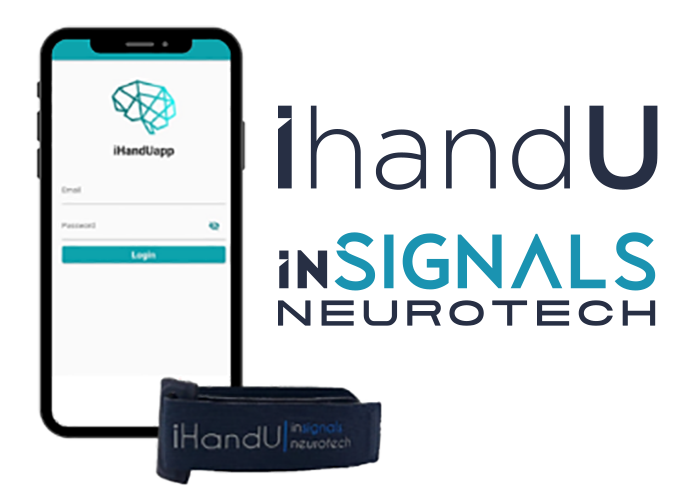
Small size
Comfortable and user-friendly, ideal for both clinical and remote use
Real-Time Data
Provides real-time analytical data instead of subjective evaluation of motor symptoms
Monitoring
Provides precise motor symptom reports for effective patient monitoring and optimized therapies such as Deep Brain Stimulation.
Hospital Tested
Tested in Hospital de São João in Porto and proved accuracy of >80% *
Reclaim the control
of your life
Patients must keep track of their symptoms and have access to accurate disease data. They usually have useful tools at their disposal to assist them:
Patients with diabetes
Patients with Hypertension
Patients with movement disorders lack a device like this
For patients
We understand the importance of having a device that allows symptom tracking for better disease management. For this reason, a monitoring version of the iHandU device is being tested in a international Multi-centre Clinical Study. Patients using the monitoring version of iHandU will be able to:
- Record “events” (off-state, tremors, falls or gait difficulties)
- Perform symptoms tests at any time to check their data
- Special mode to be used in the clinical environment by the physicians throughout regular appointments

For Neurologists
iHandU has versatile characteristics that can be valuable in healthcare by providing more accurate care and contributing to a cost-effective service. Neurologists benefit from using this technology in several ways.
iHandU was designed after direct challenge proposed by a neurology team treating Parkinson’s patients.
As confirmed by neurologists, there’s a lack of quantitative evaluation solutions of patient rigidity.
In Deep Brain Stimulation surgery physicians must verify the outcome of the therapy while in the operating room and without any instrument to support rigidity assessment for the optimum electrode implantation in the brain. iHandU has a proven record in assisting the neurology team measuring patient’s rigidity while in the operating room. Preliminary data from clinical studies indicate that iHandU improves the clinical outputs of Deep Brain stimulation to provide better patients’ quality of life.
The first version of iHandU, used in DBS surgery, was highly effective in assessing the rigidity improvement associated with optimal electrode placement.
We are extending the application of iHandU to monitor patients’ symptoms. Turning iHandU into a valuable remote patient monitoring tool for neurologists to provide high-quality care for their patients and promoting a personalized medicine.
With iHandU, it will be possible for physicians to:
- Evaluate motor symptoms, including rigidity
- Remote Patient Monitoring
- Access records of events as off state, tremors or falls
- Better Medication Management

For researchers
Since the human brain is one of the most sophisticated systems in the world, researchers are still trying to understand how it works. Neurological diseases and movement disorders that impact the brain are both being researched, and there is still a lot to learn before humans can fully treat brain diseases.
The study of the brain, movement disorders, and physical symptoms are all intertwined. Having the assessment to one may open the door to a better understanding of the other.
At inSignals Neurotech we are concerned about contributing to the exploration of this essential subject. iHandU was also envisioned as a research instrument that could assist design a new future for the treatment and management of movement disorders.

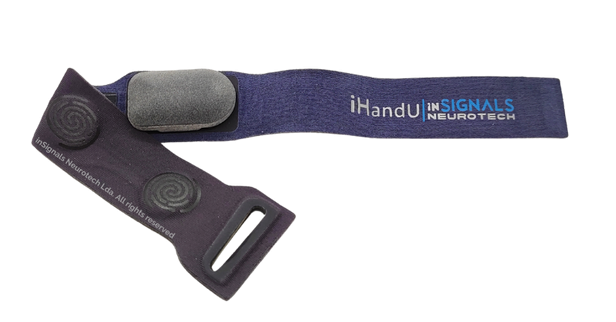
iHandU is a valuable tool to help with gathering the scientific evidence of your project.
iHandU allows the quantitative measurement of rigidity in patients with movement disorders, as well as the assessment of other motor complaints.
You can incorporate iHandU into your research for monitoring purposes or to explore the outcomes related to Deep Brain Stimulation surgeries.
iHandU can assist you in acquiring useful data from the assessment of physical symptoms reported by individuals with movement disorders in the monitoring context.
It can also be useful to confirm the efficacy and value of new pharmacological treatments and therapies for patients, ensuring that your solution is effective and beneficial to its users.
If you are promoting studies to monitor motor symptoms of patients with movement disorders or studies regarding Deep Brain Stimulation, this is the right tool for your research.
We are neurotechnologists passionate to deliver better clinical outcomes
Wrist Rigidity Assessment during Deep Brain Stimulation Surgery (2015)
We designed a novel, comfortable and wireless wearable motion sensor to classify the wrist rigidity by deriving a robust signal descriptor from angular speed values and a polynomial mathematical model to classify signals using a quantitative continuous scale. The descriptor significantly (p<0.05) distinguished between non-rigid and rigid states, and the classification model labelled correctly 83.9% of the evaluated signals against the blind-agreement of two specialists. Additionally, we developed a methodology to detect cogwheel rigidity from the angular speed signal with high sensitivity (0.93). Our system provides a reliable evaluation of wrist rigidity, improving upon the inherent subjective clinical evaluation while using small, simple and easy to use motion sensors.
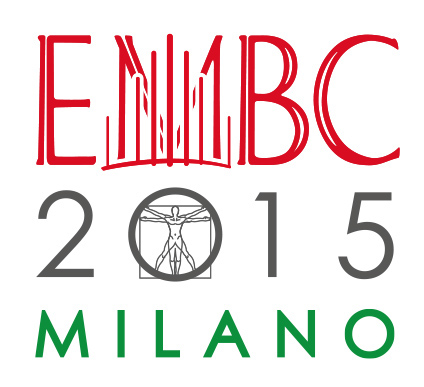
Presented and Published at the proceedings of the
37th Annual International Conference of the IEEE Engineering in Medicine and Biology Society
MICo – Milano Conference Center
Milan, Italy, August 25-29 2015
An Adaptive model approach for quantitative wrist rigidity evaluation during Deep Brain Stimulation Surgery (2016)
To enhance the performance of the previously presented system, we aimed to develop models for high and low baseline rigidity, according to the examiner assessment before any stimulation. This would allow a more patient-oriented approach. Additionally, usability was improved by having in situ processing in a smartphone, instead of a computer. Such a system has shown to be reliable, presenting an accuracy of 82.0% and a mean error of 3.4%. Relatively to previous results, the performance was similar, further supporting the importance of considering the cogwheel rigidity to better infer about the reduction in rigidity. Overall, we present a simple, wearable, mobile system, suitable for intra-operatory conditions during DBS, supporting a physician in decision-making when setting stimulation parameters.

Presented and Published at the proceedings of the
38th Annual International Conference of the IEEE Engineering in Medicine and Biology Society
Disney’s Contemporary Resort
Orlando, Florida (USA), August 16-20 2016
iHandU: Towards the validation of a wrist rigidity estimation for intraoperative DBS electrode position optimization (2019)
Our research group has previously designed a novel, a comfortable and wireless system aiming to tackle this subjectivity. This system comprised a gyroscope sensor in a textile band, placed in the patients’ hand, which communicated its measurement to a Smartphone via Bluetooth. During the wrist rigidity evaluation exam, a signal descriptor was computed from angular velocity (w) and a polynomial mathematical model was used to classify the signals using a quantitative scale of rigidity improvement. In this presented work, we aim to develop models that consider the 3-gyroscope-axes to acquire the w and the cogwheel rigidity. Our results showed that y-gyroscope-axis remains the best way to classify the reduction, showing an accuracy of 78% and a mean error of 3.5%. According to previous results, the performance was similar and the decrease of the samples to extract the w features did not compromise system performance. The cogwheel rigidity did not improve the previous model and other gyroscope-axis beyond the y-axis decreased system performance.

Presented and Published at the proceedings of the
9th International IEEE EMBS Conference on Neural Engineering
The Hilton Union Square
San Francisco, California (USA), March 20-23 2019
iHandU: A novel quantitative wrist rigidity evaluation device for deep brain stimulation surgery (2020)
In this work, we present a system that has seen four iterations since 2015, improving accuracy, usability and reliability. We aim to review the work done so far, outlining the iHandU system evolution, as well as the main challenges, lessons learned, and future steps to improve it. We also introduce the last version (iHandU 4.0), currently used in DBS surgeries at São João Hospital in Portugal.

Published at the proceedings of
Sensors – An Open Access Journal from MDPI
January 7 2020
Partners in our mission
Institutional Shareholders
Founders of inSignals Neurotech. Joined efforts with the ambition to develop and commercialise intellectual property related with iHandU technology to relevant industrial players
INESC TEC is one of the most prestigious Portuguese research centres, specialised in computer science and systems engineering. One core area is biomedical engineering through the BRAIN research group, by inSignals Co-Founder – Prof. João Paulo Cunha
Funding & Investors
InSignals has received financial support from EIT Health and from Portugal Ventures to promote relevant business activities for the project.
EIT Health is a Knowledge and Innovation Community of the European Institute of Innovation and Technology (EIT). inSignals has been receiving the support from EIT Health since 2019.
Portugal Ventures has assumed a relevant role supporting inSignals. The Portuguese venture capital is supporting the grow of the national entrepreneurship ecosystem. In 2021 Portugal Ventures believed in the work developed by inSignals and joined us.
Partners
PD Avengers is a non-profit organization for the global alliance of people with Parkinson’s, demanding change in how the disease is seen and treated. inSignals became a proud partner in 2023, joining the mission of changing today’s reality for patients managing their symptoms.
Press
Social Media
We are bringing to market a versatile tool for rigidity measurement, capable of improving the treatment and the lives of patients with neuromuscular disorders.
To demonstrate this, we are currently undergoing more clinical trials throughout Europe and US to confirm that our technology is successful.
Do you want to collaborate with us? Send us an email!

Copyright © 2022 inSignals Neurotech. All rights reserved.







